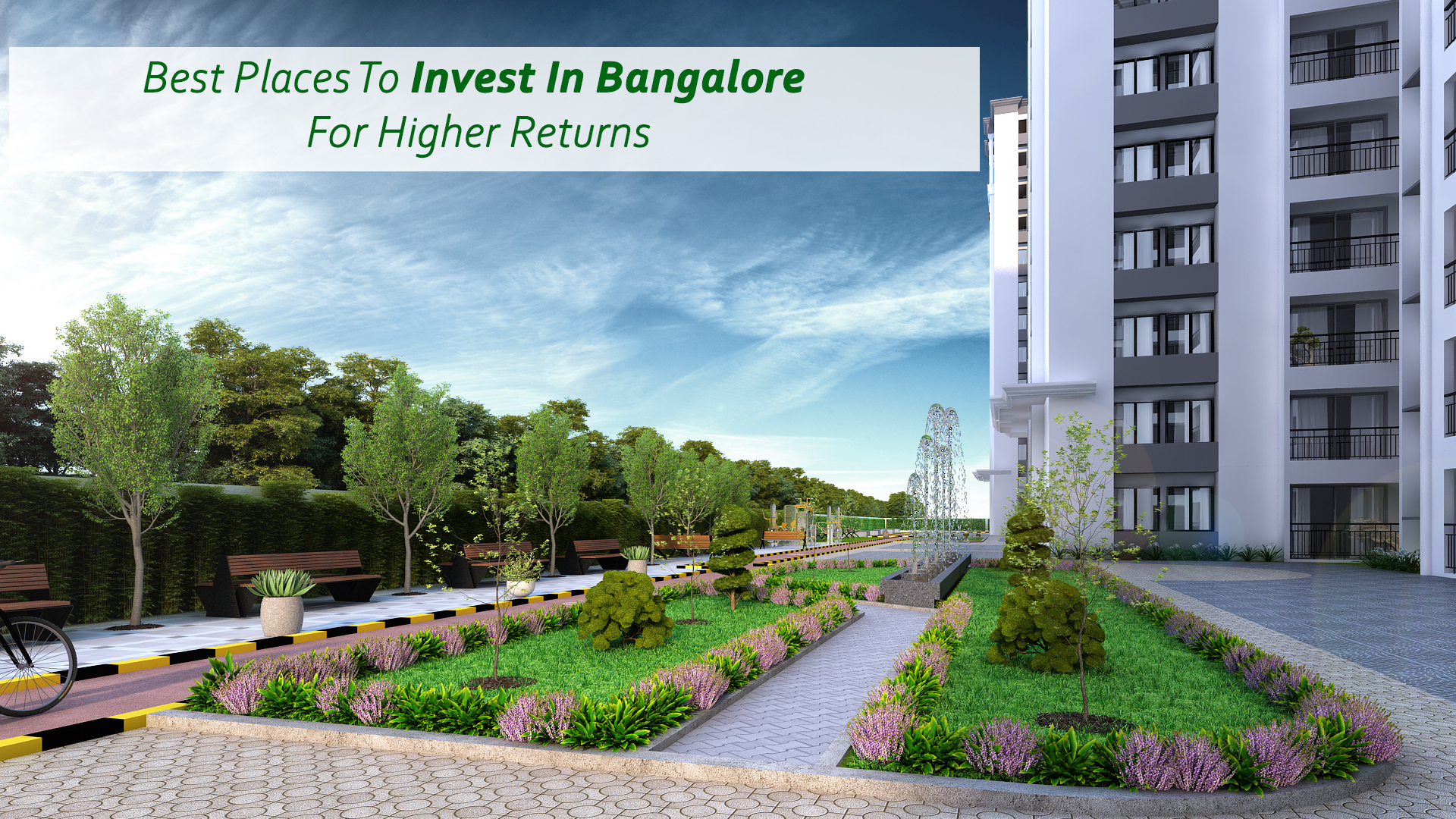Explore the Best Areas for Real Estate Investment in Bangalore
Read latest blogs and articles from Housystan

The Information mentioned here was last updated on:
29/1/2026Exploring the Best Areas for Real Estate Investment in Bangalore
Bangalore, often referred to as the Silicon Valley of India, is a bustling metropolis known for its thriving tech industry, vibrant culture, and rapid development. The city's real estate market has been booming, making it a hotspot for investors looking to diversify their portfolios. This blog outlines key areas in Bangalore where real estate investment promises substantial returns, considering factors like connectivity, future infrastructure projects, and living amenities.
Understanding Bangalore’s Real Estate Landscape
- Verified Tenants/Buyers
- Unlimited Property Listing
- Zero subscription/charges fee
Before delving into the specifics, it’s crucial to understand the broader real estate scenario in Bangalore. The city is divided into five zones:
- North Bangalore: Known for its proximity to the airport and several tech parks.
- South Bangalore: Features established residential areas with a rich cultural hub.
- East Bangalore: Home to various IT parks and vibrant residential communities.
- West Bangalore: Typically more industrial, but has developing residential pockets.
- Central Bangalore: The heart of the city with premium properties and commercial hubs.
Each zone has its unique potential for investment, driven by distinct factors such as infrastructure development, connectivity, and urban planning initiatives.
Key Areas for Investment
1. Whitefield
Whitefield has evolved from a tranquil suburb to a bustling IT hub. Several multinational tech companies and start-ups have established offices here, increasing demand for both residential and commercial properties.
Why Invest in Whitefield?
- Proximity to IT Parks: The presence of International Tech Park Bangalore (ITPB) and numerous IT companies ensures a steady rental demand.
- Excellent Connectivity: Upcoming metro lines are likely to enhance connectivity further, boosting property values.
- Living Amenities: Numerous malls, schools, and hospitals cater to the needs of residents, drawing in professionals and families alike.
2. Electronic City
One of India’s largest IT industrial parks, Electronic City, is divided into phases and is home to a slew of tech companies. This planned township has large tech campuses and affordable housing options.
Why Invest in Electronic City?
- High Employment Rate: With over 200 companies located here, the area boasts high employment, leading to an increased demand for housing.
- Affordability: Property prices are relatively lower than other parts of Bangalore, making it attractive for budget-conscious buyers and investors.
- Infrastructure Development: Future metro connectivity and ongoing infrastructure upgrades promise long-term appreciation.
3. Hebbal
Hebbal is famous for its lake, but in recent years, it’s become an investment hotspot due to the growth of the Outer Ring Road and proximity to the airport.
Why Invest in Hebbal?
- Strategic Location: Well-connected to the city through the Outer Ring Road and Bellary Road, ensuring seamless access.
- Premium Projects: Several luxury residential projects offer excellent investment opportunities for high returns.
- Recreational Facilities: Proximity to parks and lakes makes it an attractive locality for young professionals and families.
4. Sarjapur Road
Originally a far-flung suburb, Sarjapur Road is now a favored location for IT professionals seeking affordable residential space close to their workplace.
Why Invest in Sarjapur Road?
- Growth Potential: With companies like Infosys setting up large campuses, the demand for housing is set to rise.
- Connectivity Enhancements: Proposed infrastructure projects like the outer ring road and metro expansions are key growth drivers.
- Civic Amenities: Many educational institutions, hospitals, and malls cater to residents, enhancing the livability quotient.
5. Yelahanka
Known for being a calm, scenic area, Yelahanka has witnessed substantial growth due to the new international airport.
Why Invest in Yelahanka?
- Emerging Residential Hub: With many new residential projects, it offers a wide range of options from affordable to luxury housing.
- Proximity to Airport: Ideal for frequent travelers, enhancing its desirability.
- Educational Institutions: Numerous educational and training institutes attract students, creating demand for rental properties.
6. Hennur Road
Hennur is evolving rapidly, marked by a surge in residential developments catering to young professionals and families.
Why Invest in Hennur Road?
- Urban Expansion: As the city expands, areas like Hennur are experiencing substantial growth in demand.
- Connectivity: Excellent road links with accessible public transport options increase its residential appeal.
- Value for Money: Offers affordable housing options compared to other developed regions within the city.
Factors to Consider When Investing
Infrastructure and Connectivity
In Bangalore, the success of a real estate investment is closely linked to infrastructure development, such as new roads, metro expansions, and public amenities. These improvements not only enhance current living standards but also ensure long-term capital appreciation.
Market Demand and Rental Yields
Before making an investment, assess the local rental market demand. Areas with high employment concentrations, such as IT hubs, tend to yield better rental returns due to the influx of professionals seeking accommodation.
Future Growth Potential
Investing in areas on the brink of development often yields the highest returns. Research ongoing and upcoming urban projects that could increase the area’s attractiveness.
Bangalore remains one of India’s most dynamic real estate markets, driven by a burgeoning IT sector, growing infrastructure, and a youthful population. For investors, understanding the nuanced growth patterns and emerging hotspots within the city is crucial in leveraging opportunities effectively.
In this guide, each location presents unique attributes and growth drivers that could align with varied investment goals. By carefully assessing these areas based on infrastructure development, connectivity, and living amenities, investors can make informed decisions that promise robust returns in Bangalore’s vibrant real estate market.